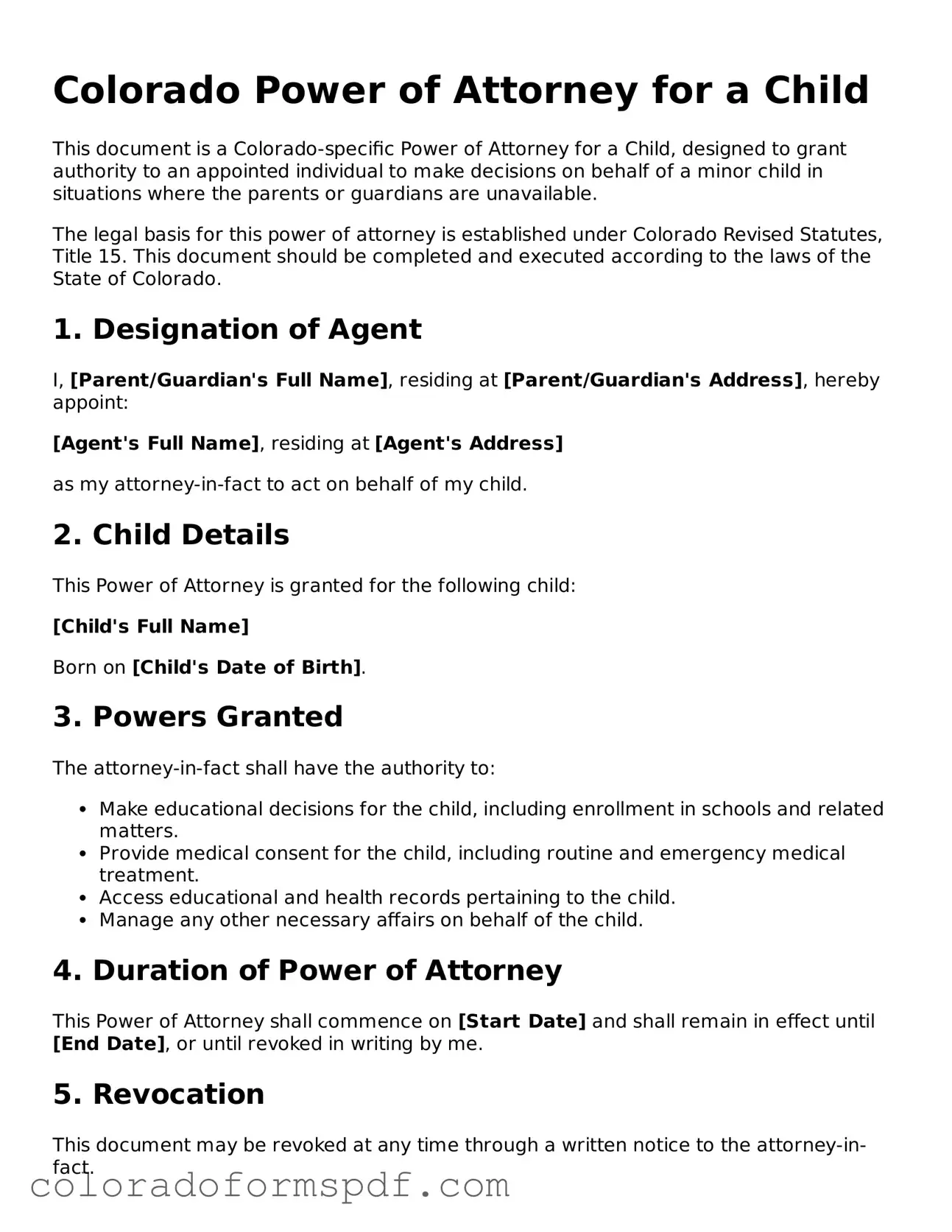Official Power of Attorney for a Child Template for Colorado State
The Colorado Power of Attorney for a Child form allows a parent or legal guardian to designate another adult to make decisions on behalf of their child. This document is essential for ensuring that a trusted individual can manage the child's care in the parent's absence. Understanding this form can help parents navigate situations where they need to grant temporary authority for their child's well-being.
Get Document Online

Official Power of Attorney for a Child Template for Colorado State
Get Document Online

Get Document Online
or
Download PDF
Quick form completion starts here
Edit and finish your Power of Attorney for a Child online, then download.